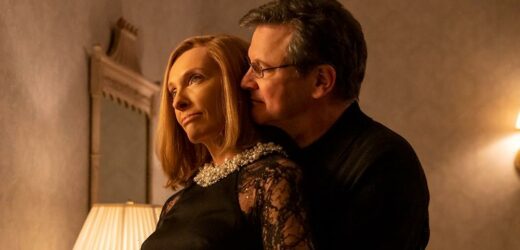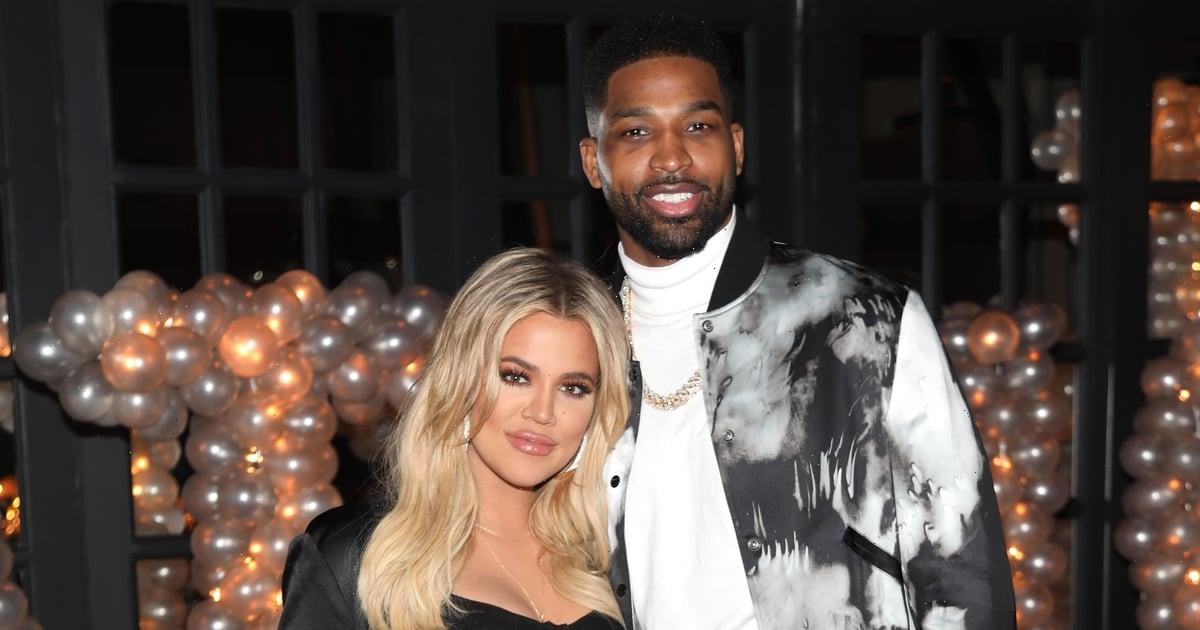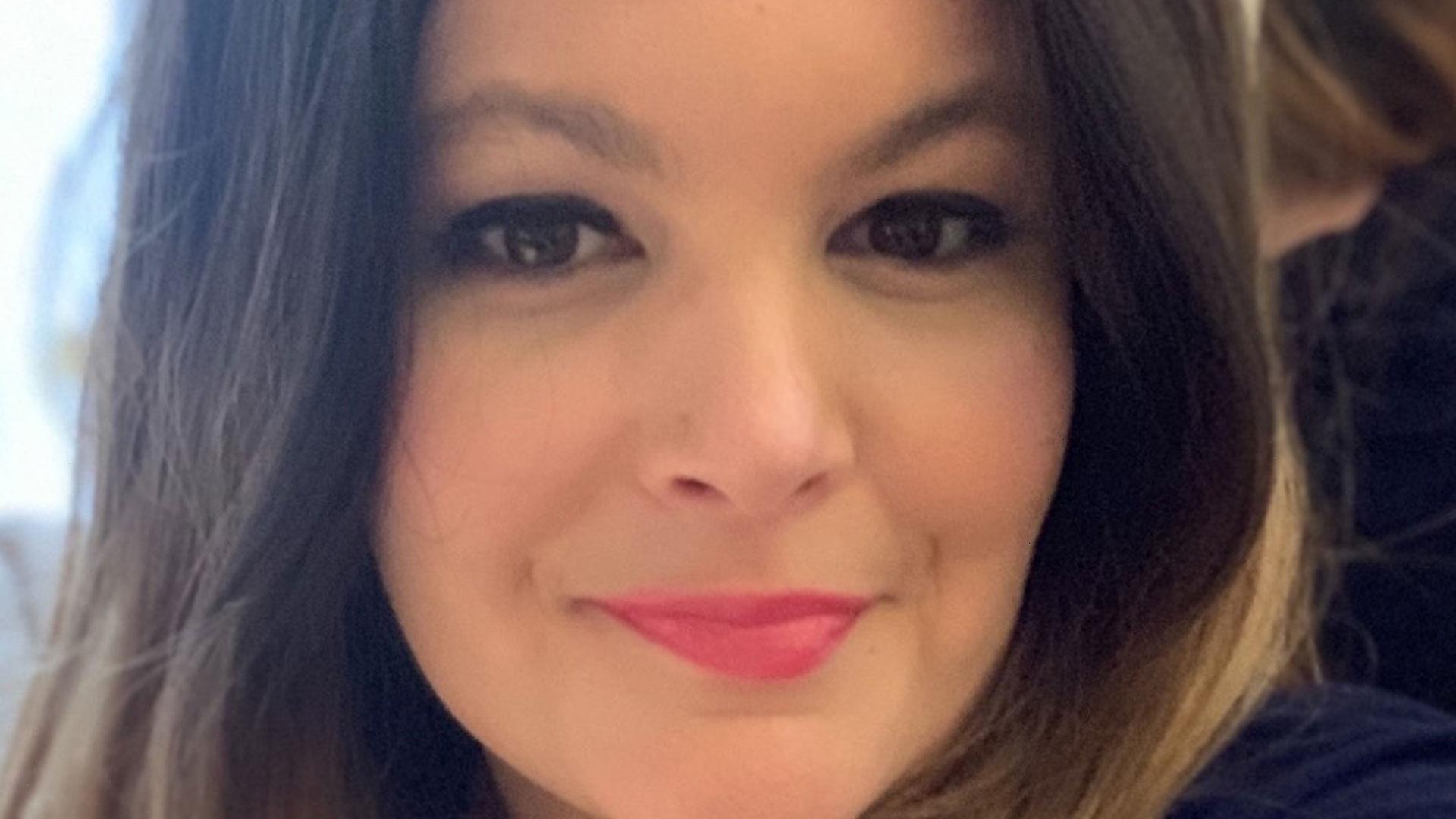Nowadays, it’s harder to not land on a scripted true crime series while scrolling through your chosen broadcaster. There’s “The Girl From Plainville,” “Inventing Anna,” “The Thing About Pam” — the list goes on, with nearly all of them based on podcasts, books or documentaries that at one point gripped the nation.
But before any of those stories existed, there was “The Staircase,” a 13-part docuseries by French filmmaker Jean-Xavier de Lestrade (released in parts beginning in 2004 on the Sundance Channel before landing on Netflix in 2018) that followed the confounding case of Michael Peterson and his wife Kathleen’s 2001 death at the bottom of their home’s back staircase. The series pioneered a new, episodic style of gripping documentary storytelling, and in real-time revealed the details of Kathleen’s death, Michael’s trial and its aftermath, becoming an object of cult fascination that persists to this day.
Antonio Campos first learned of the docuseries in 2008, when it was submitted to him for a possible feature adaptation. At the time, only eight episodes had been made, and Campos watched them all in one sitting.
“It just felt like one of the best true crime stories that I had watched, in part because I recognized that there were so many things in it that were unknowable,” Campos told Variety. “Michael Peterson as a central figure was really strong. He was this impenetrable character that was impossible to read, and I immediately leaned in.”
Campos continued to follow the case’s developments closely (he was present during courtroom scenes that were captured in later episodes of the docuseries) as he pondered what a possible adaptation might look like. But he faced the same difficulties as the original filmmakers, who found that the details of the case — from the confusing forensic evidence to curious coincidences from Michael’s past — were too complex to tackle in less than three hours. So Campos created a limited series, also called “The Staircase,” which is premiering the first three of its eight episodes May 5 on HBO Max.
Campos serves as co-showrunner and co-writer with Maggie Cohn, who gained experience in the genre when she produced and wrote on Ryan Murphy’s “American Crime Story: Versace.”
Their show take a bird’s eye view of the story, revisiting the previously known facts of the case at great length from new angles. But Campos and Cohn weren’t interested in doing a remake, and their retelling boldly imagines the inner lives of its many characters — including the enigma that is Kathleen, and even the documentarians themselves, who became attached to the case in surprising ways.
Variety sat down with Cohn and Campos to discuss their approach to the story, its inherent queerness and the importance of a Greek chorus. (And, of course, the infamous “owl theory.”)
Antonio, I know you had been following this story for a long time. Maggie, how did you get involved?
MAGGIE COHN: I was a fan of the documentary. Having studied documentary filmmaking, it was a really interesting example of starting a project, wanting it to be one thing and then seeing it evolve into something else. It was just this incredible space to question what we do for a living as storytellers and the influence and the impact that we have. That doesn’t come around that often. So it was a great opportunity to create eight episodes of TV that explore those things.
How did you come up with the point of view of the story beyond what we see in the docuseries?
ANTONIO CAMPOS: Well, right away there was a big void in the documentary, which is Kathleen Peterson. So it felt like if you were going to dramatize this story, you had to understand Kathleen and who she was. So right there, it was like, let’s try to understand what led up to the night of her death. Then there was this story that starts the night of her death and goes until the big turning point in 2011. Then there’s 2017, the future, and there’s an event that happens on that day that concludes this epic journey, but almost raises more questions in the end. So it just felt like each one of these things deserve their own beginning, middle and end. But they all were speaking to each other — the past, the present and the future. So it was that idea that really drove the construction of the series. It just kind of developed organically. That just feels like the best way to try and represent what is a very complicated series of events. It felt like you couldn’t do it in a linear way — it had to be non-linear. So there’s this three-timeline structure.
So was including the documentarians always part of the story for you?
CAMPOS: Yeah, from the very beginning of it. Because it always felt like, if you’re going to tell the story of “The Staircase” and the Michael Peterson case, you had to include the documentarians. They were there, they were part of the fabric of the story. If you took them out—
COHN: Well, it wouldn’t be “The Staircase.” The documentarians are characters like anyone else. That’s the simplest way of putting it.
CAMPOS: And the beautiful part is that they are characters. Jean-Xavier and Denis [Poncet] were just fascinating people and they were great characters with very different perspectives for us to play with.
I love watching them fight in French.
CAMPOS: Oh my God.
COHN: We really thought it was such an interesting way to have a Greek chorus. They’re the people that are seemingly not invested in an outcome, but then you slowly see them become very invested to varying degrees in Michael Peterson’s fate. That’s kind of the most direct comparison to what the viewer’s experience will be.
I want to get into something that really blew me away in the series, which was the aspect of queerness that comes through Michael Peterson, but also in so many other characters. I’m curious about how you approached that aspect of it and why you chose to highlight it so much as part of the story.
CAMPOS: Well, it’s so much a part of who Michael Peterson is and the central conflict in him. The question is whether or not Kathleen knew, and there is obviously a marriage between Michael Peterson and Kathleen Peterson where she embraced Michael’s queerness. There’s also a version that [Kathleen’s] sisters would argue, which is that he kept that a secret. For us to explore a dynamic where you could feel that dynamic could have been at play was important. It made a lot of sense, too, just based on what we knew about Kathleen, that she could have a progressive outlook, especially for that time. And it was a major part of the trial. There’s no question that the D.A. leaned into this aspect to create bias. No matter what the jury said afterwards, which is that they didn’t take that into consideration, we all know that they heard it and that it affected their perspective of Michael Peterson and that the D.A. knew that that would be the case. It’s very interesting now looking back at that, because it’s only 20 years ago, but the show, especially now, feels like a period movie in a lot of ways. The world that the story starts off with in 2001 is very different from the world that Michael Peterson is in in 2017. We tried to highlight that throughout, tracking what’s going on in the background politically in the world and to show the changing culture.
The P.O.V. that your show takes on his queerness is so distinct from the one that the original docuseries took — obviously in ways that they couldn’t — but as a viewer, I’m engaging with it in a very different way.
CAMPOS: One of the things that we were really excited about was exploring that side of Michael, and going into the sauna with him, going into the local sex shop and seeing how that dynamic unfolded. And just hearing Michael talk, which we had such a strong reference for with those emails that were collected. We knew how he spoke about it, and the ease with which he spoke about it, which was also a big part of what was fascinating in the documentary. All that stuff that came out — the debate about that, and to be able to dramatize it and to go to those places — was something that we were excited about doing in the show and took advantage of.
I think the big question mark for a lot of people starting the series is what Kathleen’s life will look like, and obviously Toni Collette brings so much life and personality to her. But I’m curious about how you approached her character, because I was noticing it almost feels like she’s living in a horror movie — like, she has all these jump scares and things like that. So I was curious how you tackled that challenge.
COHN: It wasn’t a challenge, actually. It was a great exercise in writing and creation. I’ve said this before, but it’s like, we know the Titanic sinks. We know Kathleen dies at the bottom of that staircase. And yet, we can still scare you with this. We want to show that stories, even when you know the end, still have these twists and turns that you can’t predict. She was also a woman in a certain time and place. It’s the early 2000s, it was that you-can-have-it-all phase. You can be a mother. You can be a businesswoman. You can be the matriarch and sexy at the same time. But she was suffering the brunt of how unrealistic that was. Then she had a husband who had to deal with the repercussions of toxic masculinity. It was these two people struggling with things that now we can identify in contemporary terms, but they didn’t have the nomenclature for it. The discourse wasn’t happening, and that was part of the tension in the family. We also have the idea of fate. One of our characters later in the season says, “Kathleen died the day she met him.” That’s not to say he’s guilty or innocent, but that to some degree, her fate was decided. We wanted to play with that idea throughout her arc that there was this sense of threat. Not necessarily directly from Michael, but just from life in general. So that was always fun and was always in the forefront of the situations that we decided to put her in.
CAMPOS: The deer moment in Episode 2 has some of my favorite stuff with Kathleen, because it’s almost like you’re in a psychological thriller for half the episode, and very much by design. It gave the show a different texture than you could ever feel in the documentary. So being able to live in those moments, as Maggie said, was very fun for us.
In the docuseries, we see very little of Kathleen’s family. Were you able to talk to her family, and how did you approach crafting this life for her that you knew that her family would see and possibly disagree with?
CAMPOS: We didn’t speak to Kathleen’s family directly. We based a lot of who Kathleen was on accounts that we heard directly from family members. A lot of Kathleen’s backstory was based on what Diane Fanning had put together — she was this true crime writer who wrote a book called “Written in Blood” that we had the rights to, as well. So talking to people that worked with her, neighbors, friends, we started to construct a version of Kathleen. At the end of the day, this is a dramatized version of Kathleen based on a lot of things that we knew happened to Kathleen Peterson, that we knew Kathleen Peterson did and the kind of person she was. We tried to approach it with a lot of reverence, and really just wanted to create a fully fleshed out human being that could be embraced by somebody like Toni Collette and come to life.
With this story, there’s so many rabid fans and internet sleuths. How do you go about creating something like this that you know people are going to be dissecting, while also not trying to appease fans the whole time?
CAMPOS: We anticipated that there are going to be people that jump on us about certain things, or want to put up a magnifying glass on certain parts of the story, and that’s fine. The majority of the show can sustain that scrutiny. But ultimately we were driven by telling a story and the characters’ journeys. Our North Star was that staircase. We did go to great lengths to try and recreate that space. We had our art department go and measure the actual staircase. We then built three versions of it: one which was bloody, one which was not, and one which was a green screen that we would use to recreate the depictions. That was something that we felt very strongly about, like, this thing exists, this is the center of this universe. But I don’t know what the fans are going to say. I hope that we get to release a lot of the research that we’ve collected over the years, because it is a very comprehensive database of interviews, reports, articles, photographs, audio, video that people that are fascinated by this case would appreciate.
COHN: Fans of the documentary will fall in love with the series for different reasons. At its core, we’re not trying to recreate the documentary. If someone’s interested in documentary filmmaking and interested in true crime, this offers a new way of exploring both of those things. Hopefully there is some sort of relief with that. I don’t think it’s a direct relationship, really.
Did you uncover anything new while you were researching?
CAMPOS: There’s a theory that comes up in Episode 7 that none of us had ever heard about and is very compelling. You’ll have to see it play out in real time in the episode. But there was this theory that we had never heard about, and I don’t know if it’s ever been written about. We play that out and explore that. Certain aspects of the owl theory people are going to be surprised by, and I know there are lots of people that are going to be surprised by the filmmakers’ relationship with the story and that aspect of it.
I was really mad that I didn’t get to see the owl episode yet, and I’m very much looking forward to it.
CAMPOS: Oh, man. Yeah, well, it’s coming.
So my final question for you is, do you think Michael Peterson killed Kathleen?
COHN: I don’t think anyone can answer that. What we wanted to do is create a character that showed and demonstrated great love and also demonstrated a capacity to hurt people. As creators and writers, we all brought a different perspective into the room regarding innocence and guilt, the importance of innocence and guilt. Ultimately, what we wanted to show is that people are capable of all sorts of things and to see something in themselves in him, as well. There has to be some form of empathy, and ultimately, justice isn’t necessarily black and white. So hopefully by the end of the season, people feel like the conclusion is something that brings them comfort.
This interview has been edited and condensed.
Source: Read Full Article


